Ninth Grade Curriculum
- 7 courses included
- 14-day money back guarantee
- Update grade level anytime
Subscribe more students, save more!
10% off
2 students
20% off
3-5 students
25% off
6+ students
Your ninth grader is advancing their analytical thinking, often tackling more abstract and complex ideas, and applying their knowledge to real-world situations. Ninth graders can choose from several course options for math, science, and social studies. Plus, learners love that they get to choose from 15 elective options.
Most popular core classes for ninth graders include:
- English 9 - Evaluate classic and contemporary literature while incorporating analysis and essay writing.
- Algebra I - Explore linear, polynomial, and quadratic functions.
- Biology - Discover the intricacy of cell biology, genetics, and the human body
- U.S. History - Examine historical events from the Era of Exploration through Industrial Revolution
Ninth graders choose from the following elective options:
- Art History I
- Computer Applications - Office 2019
- Concepts in Probability and Statistics
- Contemporary Health
- Economics
- Environmental Science
- Foundations of Personal Wellness
- Healthy Living
- Intro to Art
- Intro to Communications and Speech
- Lifetime Fitness
- Personal Finance
- Psychology
- Sociology
- Strategies for Academic Success
Math Alternatives:
- Algebra I
- Geometry
- Algebra II
- Pre-Calculus
- Trigonometry - only one semester
Science Alternatives:
- Biology
- Chemistry
- Physics
Social Studies Alternatives:
- US History I
- Survey of World History
- US History II
- US Government
This outline shows an example of both what your child will learn (the scope) and the order in which the lessons build on each other (the sequence). More detailed lesson plans are available in the parent account. All lesson plans are entirely customizable.
English 9
1. Mythology
- Compare myths across cultures to understand values, plot structure, and heroic traits.
- Write a narrative and analyze suspense in myths like Perseus and The Cruel Tribute.
2. The Epic Hero’s Quest
- Read The Odyssey to examine character motivation, symbolism, and themes.
- Write a character analysis and research mythical figures for an informative essay.
3. Individuality and Conformity
- Analyze conflict, imagery, and characterization in texts like Initiation and The Scarlet Ibis.
- Explore identity, voice, and extended metaphor through poems and blogs.
4. Independence and the Bicycle
- Read Wheels of Change to examine central ideas, argument, and historical context.
- Create a public service ad and make inferences from paired fiction and nonfiction.
5. Nature and the Environment
- Compare poems for sound devices, mood, and structure.
- Analyze arguments and purpose in environmental texts like The Hot Zone and Silent Spring.
6. Making a Difference
- Explore how individuals face and transform conflict in texts like Iqbal and Warriors Don’t Cry.
- Write persuasive emails, engage in group discussions, and analyze character development.
7. Caring
- Read stories and poems about sacrifice, love, and conflict like The Gift of the Magi.
- Analyze poetic form, narrative tension, and write informative essays on theme and character.
8. Tragedy and Drama
- Study dramatic elements and themes in Romeo and Juliet through characterization and soliloquy.
- Adapt scenes and write about mood, irony, and resolution using Shakespearean structure.
9. Mystery and Suspense
- Examine suspense and mood in stories like The Raven and The Most Dangerous Game.
- Write arguments and literary analyses using evidence and author techniques.
10. Espionage and Intrigue
- Analyze central ideas and text structure in The Dark Game and The Code Book.
- Write a compare-and-contrast essay and practice MLA formatting.
11. Fighting for Equality
- Read fiction and nonfiction exploring civil rights, rhetoric, and historical conflict.
- Write argumentative essays and analyze speeches by Lincoln, MLK, and Rosa Parks.
12. Unity and Division
- Trace central ideas and rhetorical strategies in texts like A Quilt of a Country and Roosevelt’s speech.
- Plan, cite, and present a multimedia research project with a works cited page.
Algebra I
1. Foundations of Algebra
- Variables, Expressions, Properties
2. Solving Equations
- One- and Two-Step Equations
3. Solving Inequalities
- Graphing and Compound Inequalities
4. Linear Equations
- Slope, y-intercept, Graphs
5. Systems of Equations
- Substitution and Elimination
6. Exponents and Exponential Functions
- Laws of Exponents, Growth and Decay
7. Polynomials
- Adding, Subtracting, Multiplying
8. Factoring
- GCF, Trinomials, Special Products
9. Quadratic Equations
- Graphing, Solving, Discriminant
10. Functions and Statistics
- Domain, Range, Data Displays
Biology
1. Science of Biology
- Scientific Method and Tools
2. Chemistry of Life
- Atoms, Molecules, Water, pH
3. Cell Structure and Function
- Prokaryotes vs Eukaryotes
4. Cell Transport
- Osmosis, Diffusion, Active Transport
5. Photosynthesis
- Chloroplast, Light-Dependent Reactions
6. Cellular Respiration
- Glycolysis, Krebs Cycle, ATP
7. Cell Division
- Mitosis and Cytokinesis
8. Introduction to Genetics
- Genes, Alleles, Punnett Squares
9. DNA and RNA
- Replication, Transcription, Translation
10. Genetic Engineering
- Biotechnology and Ethics
11. Human Heredity
- Disorders, Pedigrees, Karyotypes
12. Evolution
- Darwin, Natural Selection
13. Classification
- Taxonomy and Domains
14. Microorganisms and Fungi
- Bacteria, Viruses, Protists
15. Plants
- Structure and Reproduction
16. Invertebrates
- Sponges, Worms, Arthropods
17. Vertebrates
- Fish, Amphibians, Mammals
18. Human Body Systems
- Digestive, Respiratory, Nervous
19. Ecology
- Food Chains, Biomes, Energy Flow
U.S. History
1. Colonial America
- Foundations and Economy
2. American Revolution
- Causes and Consequences
3. Founding Documents
- Declaration, Constitution, Bill of Rights
4. Early Republic
- Political Parties and Policies
5. Westward Expansion
- Territorial Growth, Manifest Destiny
6. Sectionalism
- Slavery, Tariffs, State Rights
7. Civil War
- Causes, Battles, Effects
8. Reconstruction
- Amendments and Freedmen’s Bureau
9. Industrialization
- Factories, Urban Growth, Innovation
10. Immigration and Reform
- Ellis Island, Labor Movements
11. U.S. as a World Power
- Spanish-American War, Foreign Policy























